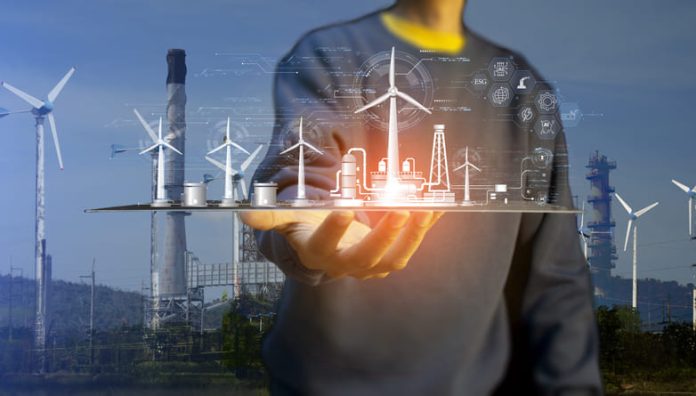As the global push for sustainability accelerates, clean energy projects are becoming integral to combating climate change, reducing carbon emissions, and fostering a greener future. Effective project management in clean energy isn’t just about ensuring tasks are completed on time—it’s about optimizing resources, navigating challenges, and driving innovation within a rapidly evolving sector.
The Evolution of Clean Energy Projects
Clean energy projects are dynamic and multifaceted, often requiring long-term strategies and multidisciplinary expertise. From large-scale wind farms to solar power grids and energy storage systems, these projects can span across continents, involve diverse stakeholders, and intersect with various industries. While the technical aspects of these projects are often the focus, successful implementation also relies heavily on an overarching project management approach that integrates planning, execution, and adaptive management.
The complexity of clean energy projects has grown exponentially in recent years, with the introduction of new technologies, stringent environmental standards, and growing demand for efficient energy systems. Project managers must adapt to these changes and integrate flexibility into their planning processes to meet emerging challenges. Effective project management is essential in the clean energy sector, where roles such as Project Management in Renewable Energy ensure that complex renewable projects are delivered efficiently and sustainably.
Redefining the Project Management Role in Clean Energy
While the core responsibilities of project management—planning, budgeting, and execution—remain essential, the clean energy sector demands a more nuanced approach. Project managers in this field must possess a diverse skill set that goes beyond traditional management roles, including an understanding of cutting-edge technologies, stakeholder engagement, and environmental considerations.
Navigating Technological Innovation
The clean energy sector is at the forefront of technological innovation, with new developments in energy storage, smart grids, and efficiency optimization transforming how energy is produced, stored, and distributed. Project managers must be agile and stay informed about these technological advancements to effectively integrate them into their projects.
Project managers who can harness these technologies will be able to streamline processes, minimize waste, and improve the performance of their projects. Adopting such innovations requires a level of technical literacy and adaptability that allows project managers to work seamlessly with engineers, designers, and technology specialists.
Ensuring Environmental Responsibility and Community Impact
In the clean energy space, environmental impact is a primary concern—not only from a regulatory standpoint but also from a social perspective. Projects must be designed with sustainability at their core, and project managers play a pivotal role in minimizing environmental disruption. For example, siting wind farms and solar arrays requires careful consideration of local ecosystems and biodiversity. Environmental impact assessments are essential to understanding the long-term effects of a project on the surrounding environment.
However, project managers must also consider the social implications of these projects. A large solar farm or wind turbine installation can significantly affect local communities, both positively and negatively. While renewable energy projects bring economic growth and jobs, they can also result in disruptions to local economies or displacement of communities. Effective project managers must engage with local stakeholders, balance the needs of the community, and implement solutions that benefit all parties involved.
Managing Complexity and Risk in an Unpredictable Landscape
The clean energy sector is highly dynamic, subject to shifting regulatory landscapes, fluctuating energy prices, and unforeseen market changes. Project managers are tasked with managing these uncertainties while keeping projects on track. One key challenge is navigating government policies, subsidies, and incentives that often change with political administrations. Project managers need to stay agile, anticipate policy shifts, and develop contingency plans that allow the project to proceed smoothly regardless of political or economic changes.
Additionally, the technology and infrastructure required for clean energy projects often come with a range of risks, from supply chain disruptions to delays in equipment manufacturing. To address this, project managers must implement rigorous risk management practices that include scenario planning, diversified supply chains, and real-time monitoring of project progress to mitigate any setbacks.
Fostering Collaboration Across Disciplines
Clean energy projects typically involve multiple parties working together: engineers, designers, environmental specialists, contractors, and even government agencies. Effective project management requires fostering a collaborative environment where all teams work towards a shared vision. This collaboration is especially important when integrating new technologies, as technical experts from various disciplines must coordinate to ensure everything functions seamlessly.
Project managers must be adept at communication, negotiation, and leadership, ensuring that all parties are aligned and that conflicts are resolved swiftly. For instance, if a contractor faces delays in obtaining materials, the project manager must mediate between suppliers, contractors, and engineers to come up with solutions without jeopardizing the project’s timeline or quality.
Leaning into Digital Project Management Tools
The increasing complexity of clean energy projects calls for the use of advanced project management tools. Digital platforms, such as cloud-based project management software, allow project managers to track timelines, budgets, and resources in real time. These tools also facilitate remote collaboration, a growing necessity in an increasingly globalized industry.
The use of data analytics and AI can further enhance project management by providing insights into potential delays, cost overruns, or resource shortages. This data-driven approach allows project managers to make more informed decisions, address issues proactively, and ultimately streamline operations.
The Strategic Importance of Clean Energy Project Management
Project management in the clean energy sector is not just about ensuring that projects are delivered on time and within budget. Effective management has strategic implications that can determine the long-term success of a renewable energy project and its alignment with global sustainability goals.
Accelerating the Transition to Renewable Energy
One of the most significant impacts of effective project management in clean energy is its role in accelerating the transition from fossil fuels to renewable energy sources. By delivering projects efficiently and on time, project managers help ensure that clean energy systems are deployed at scale, driving down costs and making renewable energy more accessible to communities around the world.
Large-scale renewable energy projects such as offshore wind farms, solar power plants, and energy storage systems play a key role in reducing reliance on fossil fuels and contributing to global decarbonization goals. Project managers who successfully deliver these initiatives have a direct impact on the world’s ability to meet its climate targets and transition to a cleaner, more sustainable energy future.
Contributing to Job Creation and Economic Growth
Clean energy projects also have a profound economic impact, creating jobs and spurring local economies. From the manufacturing of renewable energy components to the construction and maintenance of power plants, clean energy projects generate employment opportunities across a wide range of industries. Effective project management ensures that these opportunities are maximized, promoting local workforce development and training while also ensuring that projects are completed efficiently and sustainably.
The Future of Project Management in Clean Energy
The increasing complexity of renewable energy systems, the need for innovation, and the emphasis on sustainability will continue to demand more sophisticated approaches to project management. By embracing technological advances, fostering collaboration, and adapting to the evolving landscape, project managers will be at the forefront of driving the clean energy revolution.
In conclusion, project management in the clean energy sector is more than just a function—it’s a catalyst for change. The ability to execute projects successfully can accelerate the adoption of renewable energy, drive innovation, and contribute to a more sustainable future. Effective project managers will continue to play a pivotal role in ensuring that clean energy projects are delivered on time, within budget, and with the maximum positive impact on society and the environment.




































